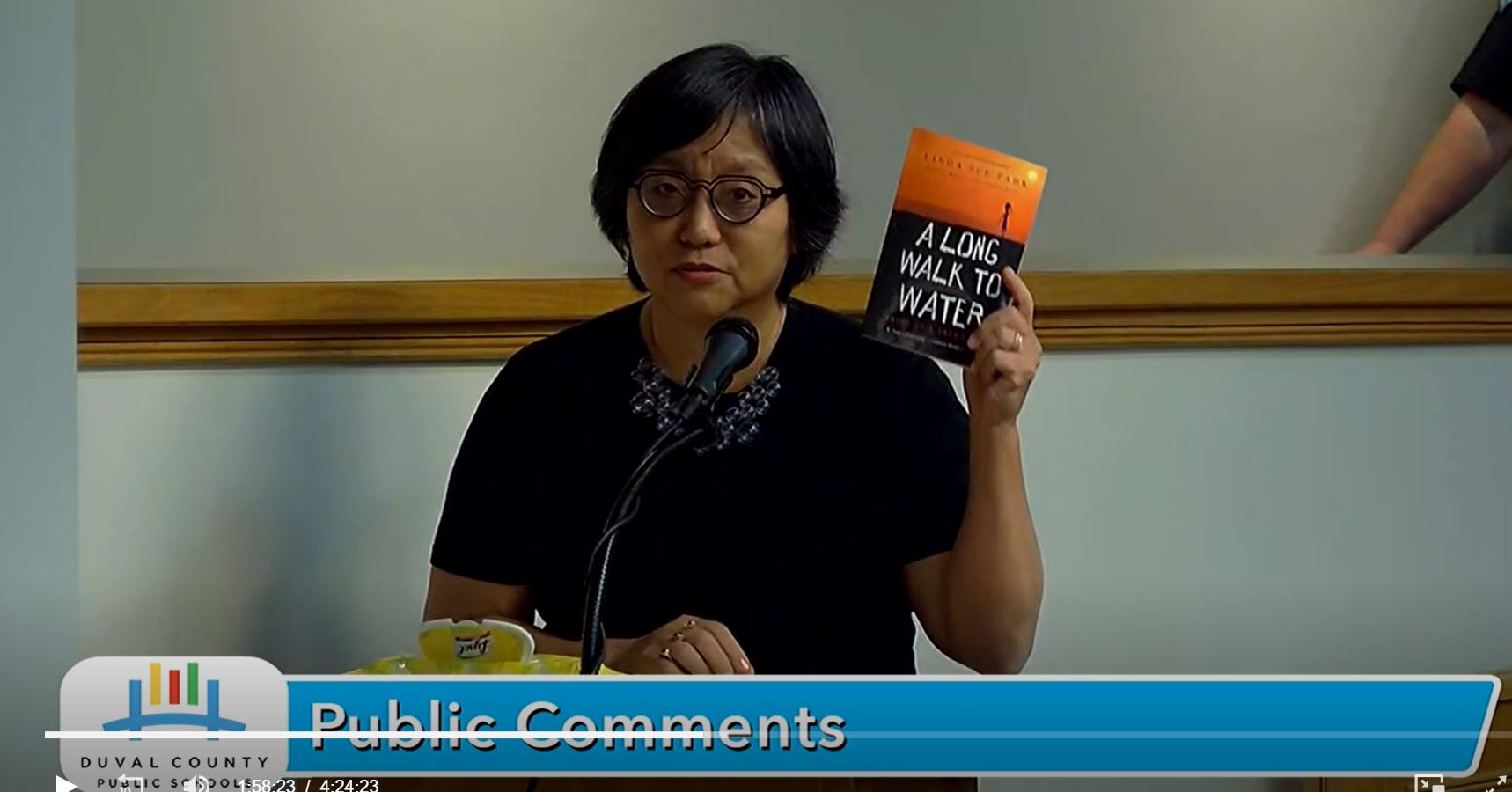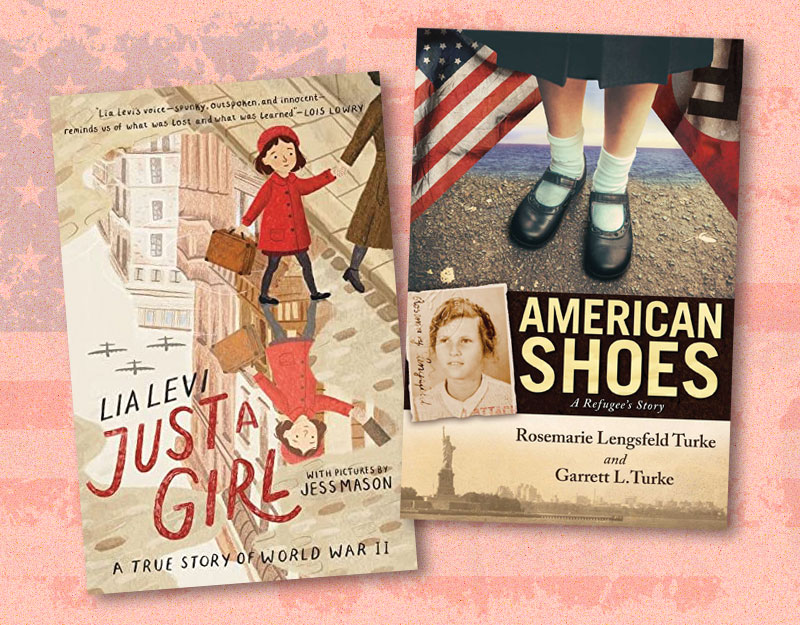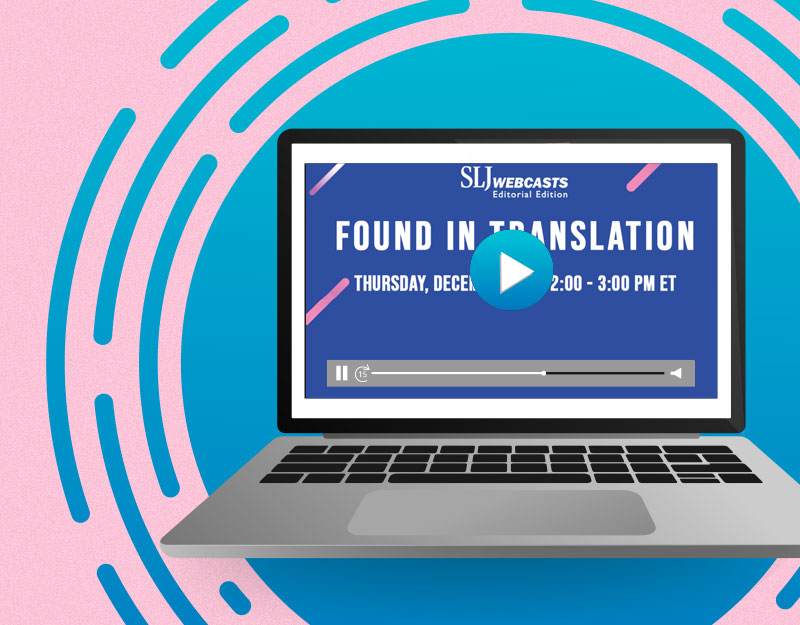Review of the Day: The Romeo and Juliet Code by Phoebe Stone
 The Romeo and Juliet Code
The Romeo and Juliet Code
By Phoebe Stone
Arthur A. Levine (an imprint of Scholastic)
$16.99
ISBN: 978-0-545-21511-4
Ages 9-12
On shelves now
It seems unfair that my attention was first drawn to The Romeo and Juliet Code because of its cover. No book deserves to be held responsible for its misleading jacket and Phoebe Stone’s latest is no exception. Set during the Second World War, the book looks like a rejected shot from a GAP catalog more than a historical novel (pink Converse?? Really??). When ire was aimed at the jacket early on I remember many a supporter saying, “It’s such a pity it has that cover because the story is wonderful!” Willing to give it the benefit of the doubt (after all, The Trouble with May Amelia has a similar problem and is a magnificent bit of writing) I plucked up a copy from a friend and started to read. Oh my. No book, as I say, deserves to be held responsible for the sins of its jacket, but this book has sins of its own above and beyond its packaging. Ostensibly a kind of mystery for kids, folks with a low twee tolerance would do best to steer clear of this one. It is indeed beloved in its own right but this particular reviewer found its style to be strangely grating. As historical fiction goes, this does not go to the top of my list.
Flissy has found herself unceremoniously dumped. One minute she is living happily in her flat in England with her parents Winnie and Danny (though she doesn’t much care for the bombing going on outside). Next thing she knows they’ve managed to hitch a ride on a ship bound for America and she is left in the care of an unmarried uncle, an unmarried aunt, and a grandmother, none of whom she has ever met before. Her initial homesickness and loneliness are partly appeased when she starts uncovering the secrets lurking in the house. A hitherto unknown cousin by the name of Derek is found upstairs. Uncle Gideon is receiving strange coded messages and they seem to be coming from Flissy’s Danny. And why does everyone keep talking about the whispers in the nearby town? What other secrets can one family harbor? Flissy doesn’t know but with the help of her cousin she is bound to find out the whole truth.
ADVERTISEMENT
ADVERTISEMENT
I have an unattractive habit that comes out whenever a book starts to grow repetitive in some way. I count. Which is to say, I count the number of times that repetitive element appears. When I read Eragon for the first time I counted how many times a chapter began with some version of “Eragon woke up” (final count: twenty-one chapters do this). In the case of The Romeo and Juliet Code my weirdness was prompted by the author’s use of the term “ever so” as in “I was ever so interested in the number of times `ever so’ appeared in this book.” There are thirty-seven moments when the phrase pops up. In two cases the phrase appears twice on a single page. Reading an advanced readers galley of the book I was convinced that this had to be a typo of some sort. Surely the author got a little carried away and the copy editor would lay down the law before publication time, yes? Apparently not. On the child_lit listserv the book’s editor spoke about the ubiquitous cascade of “ever so”s. There was an intention to make the phrases prolific at the start of the story when Flissy is clutching to her British identity like her stuffed bear and then to slowly weed them out by the story’s end. A noble idea that didn’t quite pan out. There is indeed a portion of the book where the phrase dies out. That would be between pages 131-159. Then they come back full force. Indeed, there is no lessening of the words, so that you get to the final one on page 286 while the story ends on page 295.
This does explain a different problem I had with the novel, though. I had a hard time believing that Flissy was English. Every time she pulled out a Britishism, be it “chap” or “putted along” or any of the other hundreds of words and phrases dotting the text it felt . . . well, it felt like Flissy a girl who had visited England for a little while and was trying too hard to sound like she was from there. To be blunt, she sounded American to my tin Yankee ears. The editor in that same child_lit explanation said that two Brits vetted the book, so really I shouldn’t have any objections at all. Still, every time I was just about to sink into the story, out Flissy would come with a sentence like, “I am very fond of Mr. Churchill. He’s our lovely prime minister in England,” and my teeth would start to grit. Add in the near ridiculous number of secrets kept from Flissy at the start for some rather shaky reasons (they didn’t tell her that her sick cousin lived upstairs for what reason exactly?) and it made for slow going.
Yeah, but would a kid care? Honestly the bulk of child readers picking up this book aren’t going to mind two bits if the heroine refers to herself as “very much more clever” and the like. They’re going to care far more about the characters and the story. Which is all well and good until you come to realize that as a heroine Flissy is a bit of a wet blanket. You want her to solve the mystery of the code the minute you hear about it, but after she and Derek discover the coded letters, their efforts to decode them are, for chapters at a time, largely forgotten. Once in a while Derek will mention that the code isn’t found in any of the code books he’s read, and Flissy might track down the mailman again so as to get a new letter but it isn’t until a third character practically physically hands them the answer without any prompting that they start trying to actively solve it. My thinking is that if the word “code” is in the title then your protagonists have to be a little proactive about said code. Otherwise it just feels like the author is treading water.
The Romeo and Juliet Code has been most frequently compared to The Secret Garden and it’s easy to understand why. Both books begin with girls sent to live with hitherto unknown uncles and who discover hidden male cousins who have an inflated sense of their own physical uselessness. Of course that all ends somewhere around page 127 and so the comparison sort of peters out. There’s also the fact that Mary Lenox, the star of The Secret Garden, works as a character because she’s a spoiled little brat. You don’t like Mary, yet over the redemptive course of the book you come to love her. Flissy isn’t really like that. True, I found her unlikable at the start, but in a different way. Flissy felt self-absorbed to me. She was a realistic portrayal of a girl immature for her age, and while you might know that kind of person in real life, it’s hard to stay in her presence for as long as a novel requires.
In spite of her immaturity Flissy is a romantic, crushing on her cousin. Precocious girls of the romantic persuasion are maybe the hardest characters in the world to write. Phoebe Stone, therefore, has my utter sympathy on this one. It’s very hard to write an Anne of Green Gables / Girl from The Fantasticks. You have to walk this delicate line between the earnest and the ridiculous. So while I cringed every time Flissy commented on Derek’s various positive qualities, at the same time I couldn’t help but acknowledge the truth behind them. Girls really do think that way. It’s not necessarily pleasant to read, but it’s honest.
Some folks have found the surprise at the ending of the tale to be predictable, but that didn’t bother me particularly. As I see it, most kids probably won’t see it coming and those that do will simply feel pleased with themselves. What did bother me was the rest of the novel itself. The passive protagonist. The odd speech patterns that attempt to be historically accurate but feel as if the writer is trying too hard. Dig deep enough down into The Romeo and Juliet Code and I think you could find characters and ideas worth exploring in a novel. It’s a pity all of that is buried beneath a style that hurts rather than helps. The book will find its audience, there is little doubt. Enjoying it, however, will have to be taken on a case-by-case basis.
On shelves now.
Source: Borrowed galley from friend for review.
Notes on the Cover: Here the book has my utter sympathy. While it is pretty clearly a work of WWII historical fiction, the jacket is vying for this year’s Most Misleading Cover Award (as I say, tying for first place with Jennifer L. Holm’s The Trouble With May Amelia). To look at it you would assume it was a contemporary teen novel. Ignoring the fact that it’s a middle grade book where the romance is merely a simple crush, it’s the clothing that’s the real problem here. Were Flissy a farm girl working the fields we might be able to overlook the jeans but pink Converse couldn’t have been introduced any earlier than 1966 when the company moved away from the standard black and white. Awful awful awful flub.
Filed under: Reviews
About Betsy Bird
Betsy Bird is currently the Collection Development Manager of the Evanston Public Library system and a former Materials Specialist for New York Public Library. She has served on Newbery, written for Horn Book, and has done other lovely little things that she'd love to tell you about but that she's sure you'd find more interesting to hear of in person. Her opinions are her own and do not reflect those of EPL, SLJ, or any of the other acronyms you might be able to name. Follow her on Twitter: @fuseeight.
ADVERTISEMENT
ADVERTISEMENT
SLJ Blog Network
2024 Books from Pura Belpré Winners
Winnie-The-Pooh | Review
Parsing Religion in Public Schools
Finding My Own Team Canteen, a cover reveal and guest post by Amalie Jahn
ADVERTISEMENT








I too had a problem with the book, but could not put my finger on why it didn’t work for me.
Interesting review! And someday maybe you can explore the concept of “Yeah, but would a kid care?” in children’s literature. I see the point of asking it, given that almost no novel is perfect, and so we have to analyze whether a particular weakness in plot (or characterization, or whatever) in a book will really harm the reading experience for young people. But it still makes me itchy to give mistakes a pass simply because the book is for kids. There’s such a range of sophistication levels in child readers, someone is likely to be disappointed.
Interesting point! There’s “Yeah, but would a kid care” vs. “Yeah, but do we care if they don’t care?” As you say, only the best is good enough for our child readers so giving a pass, as it were, is out. At the same time, is a flaw seen by an adult important enough to steer a child towards other books that adult deems “better”? As far as I can tell, there are so many great books out there for kids, why bother with the merely okay? Which, in turn, makes you wonder why I’d bother reviewing a book that I didn’t care for in the first place. But I usually write critical reviews of titles that have gotten a lot of love out there, and this book has its legion of fans.
I didn’t have a problem with the surprise ending. I did find it rather unbelievable that she would take the surprise as well as she did. I enjoyed the book very much, but that ending threw me.
I’m right with you. This book had so many elements that made me think I would love it, but it didn’t feel authentic (Flissy’s language) or well plotted.
I’m ever so grateful for this review.
We have the book from the library right now — I’d heard good buzz, and my older daughter was drawn to the cover. But we pick a bedtime book by reading the first two paragraphs and deciding whether to continue, and neither girl was particularly drawn in by the first pages, which means that other books keep leapfrogging over this one in the queue. If history is any guide, this one will eventually go back to the library unread.
We just discussed this book at the Rhode Island mock Newbery, and while most people liked it, those who didn’t had the same issue with the language. However, as one who liked it, I have to defend Flissy just a bit!
I didn’t find her to be passive. I agree that she sometimes forgets about the code, but meanwhile, she isn’t just waiting for things to happen–she’s meddling! She sets up her aunt and the mailman, gets her cousin to make his first public appearance, and asks her uncle to open up the piano that’s been nailed shut. She’s actually quite busy!
True. I guess I meant that she’s passive in the sense of the Code itself. Since it’s in the title I thought that at least some of the book would have consisted of her attempting to crack it. I thought that was a big plot point, after all. So to have her and her cousin just sort of dink about with other projects and then have the solution fall neatly into their laps . . . well, it was an odd way of going about it, I think.